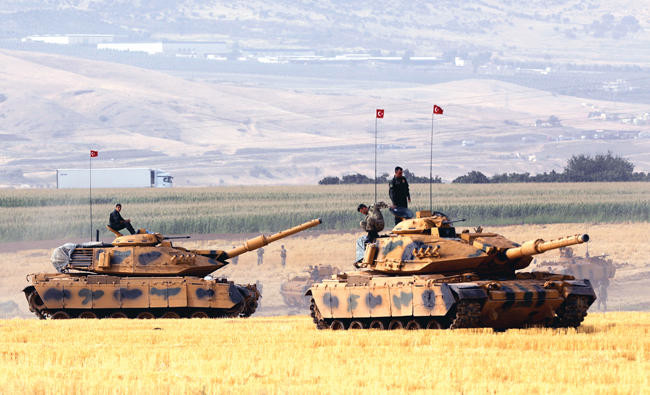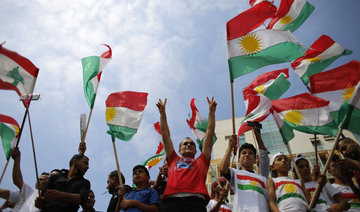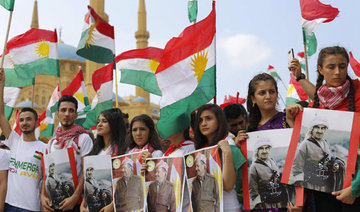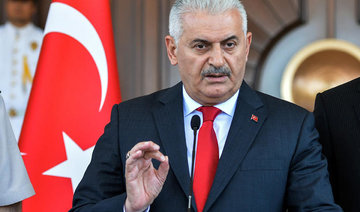JEDDAH: Saudi Arabia urged Kurdish leaders on Wednesday to call off next week’s planned independence referendum in the interests of Iraq’s stability, security, unity and sovereignty.
The referendum “may result in negative repercussions” for the fight against terrorist organizations, and “it would be best to avoid new crises,” a Saudi government statement said.
The Kingdom “looks forward to the wisdom of President Masoud Barzani in not holding a referendum … in order to spare Iraq and the region more risks,” and “calls upon the parties concerned to engage in dialogue in order to achieve the interests of the Iraqi people.”
All parties should adhere to the agreements they had signed, and to the provisions of the Iraqi constitution, the statement said.
The Iraqi prime minister Haider Al-Abadi insists that the referendum is unconstitutional, and the Iraqi Supreme Court has ordered it to be suspended. “The referendum is rejected, whether today or in the future, in the Kurdistan region within the 2003 borders or in the disputed areas,” Al-Abadi said.
Al-Abadi also hinted at a possible military intervention in Kirkuk, which is home to diverse communities including Arabs and Turkmen who oppose the vote.
“If a Kirkuk citizen is exposed to danger, it’s our legitimate duty to impose security,” he said
Amid growing international pressure on the Kurds to call off the vote, Turkey’s President Recep Tayyip Erdogan threatened to impose sanctions against the Kurdistan Region. Turkey, home to the largest Kurdish population in the region, has warned that any breakup of Iraq or Syria could lead to a global conflict, and is due to prepare a formal response on Friday.
The Turkish cabinet and security council would discuss Ankara’s options and “put forward their own stance on what kind of sanctions we can impose, or if we will,” Erdogan said in New York, where he is attending the UN General Assembly.
Nevertheless, Masoud Barzani, leader of the Kurdistan Regional Government, remains determined and defiant. Irbil’s union with Baghdad had come to an end, he said, and he called for Iraq and the Kurdistan Region to be “kind neighbors” instead. There was no other solution than to go through with the referendum, he said.
Barzani has said a “yes” vote would not trigger an immediate declaration of independence, but rather kick-start “serious discussions” with Baghdad.
Saudi Arabia urges Barzani to call off Kurdish independence referendum
Saudi Arabia urges Barzani to call off Kurdish independence referendum
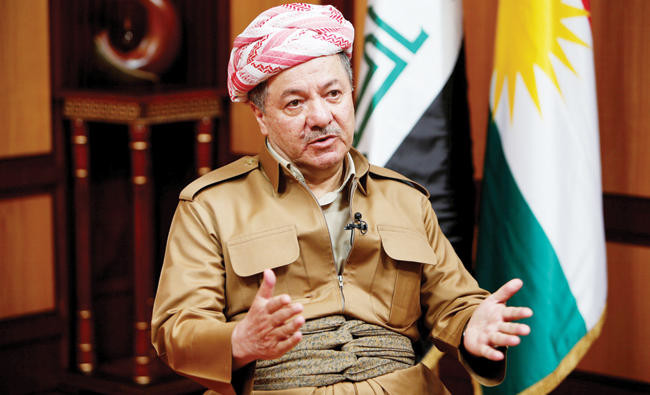
Saudi Arabia retains top spot in global cybersecurity rankings for 2025

- National digital transformation strategy helps propel Kingdom to forefront of international standards, officials say
- Saudi Arabia cited as Tier 1 ‘role-modeling’ nation by UN specialist agency, further underlining its world standing
RIYADH: Saudi Arabia has maintained its position as the top-ranked country in global cybersecurity, according to this year’s edition of the International Institute for Management Development World Competitiveness Yearbook.
The cybersecurity indicator ranking reflects what officials describe as continued support from the country’s leadership, including King Salman and Crown Prince Mohammed bin Salman.
Officials added the leadership’s national digital transformation strategy has helped propel the Kingdom to the forefront of international benchmarks.
They also said the Kingdom’s achievements in cybersecurity stem from a comprehensive, long-term strategy that balances national security with economic and technological development.
Saudi Arabia was also designated a Tier 1 “role-modeling” nation in the Global Cybersecurity Index 2024 published by the UN’s International Telecommunication Union, further underlining its international standing.
Central to this model is the National Cybersecurity Authority, the country’s primary body for overseeing cybersecurity affairs, and the Saudi Information Technology Company, which serves as its technical and strategic partner.
Together, these institutions have helped strengthen national cyber defenses, localize key technologies, and expand collaboration both domestically and internationally.
The NCA, which acts as the national reference point for all matters relating to cybersecurity, is tasked with enhancing the Kingdom’s digital resilience by safeguarding critical infrastructure, key sectors, and government services.
It is also responsible for setting policies, frameworks, and standards while encouraging innovation, investment, and growth within the Kingdom’s cybersecurity sector.
These initiatives form part of Saudi Arabia’s wider efforts to build a secure and trusted digital environment that supports economic growth and global cooperation.
Riyadh’s coolest ride this summer is the metro

- Designed for over 1m passengers a day, the system is impressing locals as temperatures soar
RIYADH: As Riyadh sizzles under peak summer heat, residents are turning to the city’s new metro system for a faster, cooler way to get around, proving that public transport can thrive, even when temperatures soar.
Arab News spoke to Riyadh residents about why the summer sun is no issue when it comes to commuting.
For the past couple of months, Rashid Alikhan has opted to use the metro to get to work, hopping on at SABIC Station and getting off at King Abdullah Financial District.
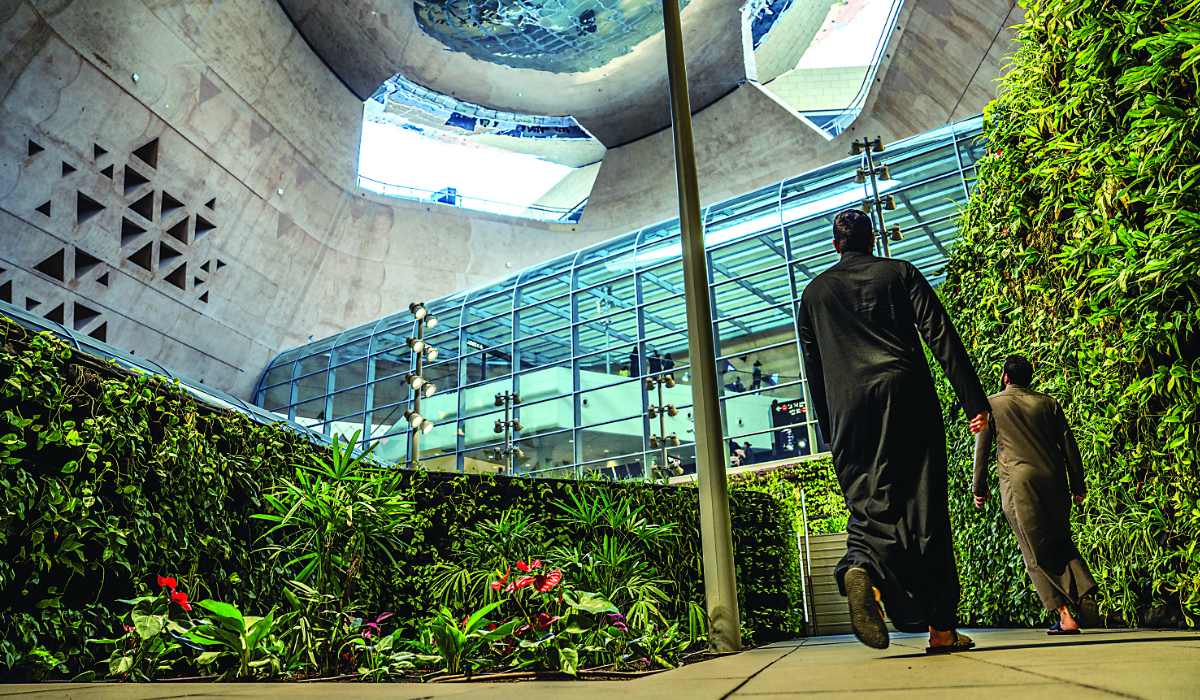
“The most challenging aspect has been getting to the station and back home in a way that made sense. I’d say parking is an issue if you don’t go early,” he said.
“I go before it gets too hot to walk from the parking to the station … The stations are well AC’d … but it does get hot, so you just have to bear it.”
He recommends that passengers take a seat during the transit, whenever they are available, to minimize the burden of the trip.
HIGHLIGHTS
• Riyadh Metro features driverless trains and air-conditioned cabins with designated seating areas.
• The system is also integrated with the Riyadh Bus network, creating a unified public transport solution.
• Riders can pay via contactless cards, station kiosks, or the Darb app.
“Getting first class is worth it, and avoiding the rush and the sun. If you’re walking from the car to the station, I see a lot of people taking umbrellas, so that helps.”

Commuters say the Riyadh Metro has significantly reduced travel times compared to navigating the city’s increasingly congested roads.
The system includes several sustainable features, such as energy-efficient trains and stations, and regenerative braking technology that helps cut energy use.
To boost accessibility, rideshare platforms such as Uber are offering free connections through the RPT Link service, which transports passengers to metro stations within a 3 km radius.

Nouf Al-Dossari, a content creator, said she relies on the metro for attending events and work-related outings. “It has been cost-friendly to me and saves me lots of time,” she said.
“Usually I’d leave my house an hour before to just reach in time because of the traffic, but now I leave 15 to 20 minutes before the scheduled time. It’s been wonderful.”
She encourages others to use the metro during the hot months, but also advises staying hydrated and in the shade as much as possible.

“I believe the most challenging part is trying to find an available seat when coming back home, and even in the morning because everyone is heading to work,” she said.
While she is used to the Riyadh heat, she still uses Uber to reach the stations for safety reasons.
“Some are located near highways or busy roads which makes it a bit difficult to safely walk to and from,” she explained.

Noura Al-Dakhil has been using the metro for her daily commute for over a month and says that the transition has been relatively smooth.
“The stations I use have a big sidewalk next to it, safety measures, and comfortable access. Although the parking situation isn’t ideal — or, let’s say, nonexistent,” she said.
While she used to walk to a nearby station in cooler months, the summer heat has forced her to adapt.

“In the summer, I use my car and park next to the station,” she said. For those without that option, she recommends preparing for the weather, such as using an umbrella.
“It’s a game changer. And wear airy fabrics. I switched to cold caffeinated beverages, which helped too.”
The metro is built to accommodate up to 1.2 million passengers daily. It features driverless trains and air-conditioned cabins with designated seating areas.
The system is also integrated with the Riyadh Bus network, creating a unified public transport solution. Riders can pay via contactless cards, station kiosks, or the Darb app.
Saudi traditional container keeps its cool — and makes a cultural comeback

- Al-Samil is handmade from tanned livestock skin using time-honored methods, and can preserve the quality and taste of ghee, yogurt, and water for extended periods without the need for cooling
RIYADH: As part of Saudi Arabia’s Year of Handicrafts, a traditional handmade leather container used to store food before the advent of refrigeration is making a comeback in the Northern Borders region.
For generations, Al-Samil played a vital role in desert life as a simple storage container for food and water.

Now the traditional items are being celebrated as a lasting emblem of Bedouin heritage, Saudi Press Agency reported.
Al-Samil is handmade from tanned livestock skin using time-honored methods, and can preserve the quality and taste of ghee, yogurt, and water for extended periods without the need for cooling.
FASTFACT
At Arar’s traditional market, local artisans display Al-Samil alongside other crafts, including sadu weaving, spinning tools, and embroidered garments.
More than just functional, Al-Samil reflects a self-sufficient way of life and craftsmanship passed down through generations.
Today, interest in Al-Samil is being reived at heritage festivals and handicraft exhibitions held across cities and governorates in the region.
The container is still valued for storing wild ghee and fermented yogurt, with the leather adding a distinct flavor. Many rural homes and farms still use it.
At Arar’s traditional market, local artisans display Al-Samil alongside other crafts, including sadu weaving, spinning tools, and embroidered garments.
The market has become a key attraction for both residents and tourists looking to experience the region’s cultural heritage firsthand, the SPA reported.
Saudi project clears 1,559 mines in Yemen

- The demining operations took place in Marib, Aden, Jouf, Shabwa, Taiz, Hodeidah, Lahij, Sanaa, Al-Bayda, Al-Dhale and Saada
RIYADH: Members of Saudi Arabia’s Project Masam removed 1,559 explosive devices from various regions of Yemen last week.
The total included 1,513 unexploded ordnances, 45 anti-tank mines and one anti-personnel mines, according to a recent report.
Ousama Al-Gosaibi, the initiative’s managing director, said that 504,295 mines have been cleared since the project began in 2018.
The explosives were planted indiscriminately and posed a threat to civilians, including children, women and the elderly.
The demining operations took place in Marib, Aden, Jouf, Shabwa, Taiz, Hodeidah, Lahij, Sanaa, Al-Bayda, Al-Dhale and Saada.
The project trains local demining engineers and provides them with modern equipment. It also offers support to Yemenis injured by the devices.
Teams are tasked with clearing villages, roads and schools to facilitate the safe movement of civilians and delivery of humanitarian aid.
Saudi deputy FM receives EU ambassador

- They reviewed relations between the Kingdom and the EU, as well as regional and international developments of common interest
RIYADH: Saudi Deputy Minister of Foreign Affairs Waleed Elkhereiji received EU Ambassador to the Kingdom Christophe Farnaud in Riyadh on Monday.
During the meeting, they reviewed relations between the Kingdom and the EU, as well as regional and international developments of common interest, the Foreign Ministry said in a post on X.
Meanwhile, Deputy Minister of Foreign Affairs for Economic and Development Affairs Abdullah bin Zarah received Dya-Eddine Bamakhrama, ambassador of Djibouti and dean of the diplomatic corps, in Riyadh on Monday. They discussed economic matters of mutual interest.


